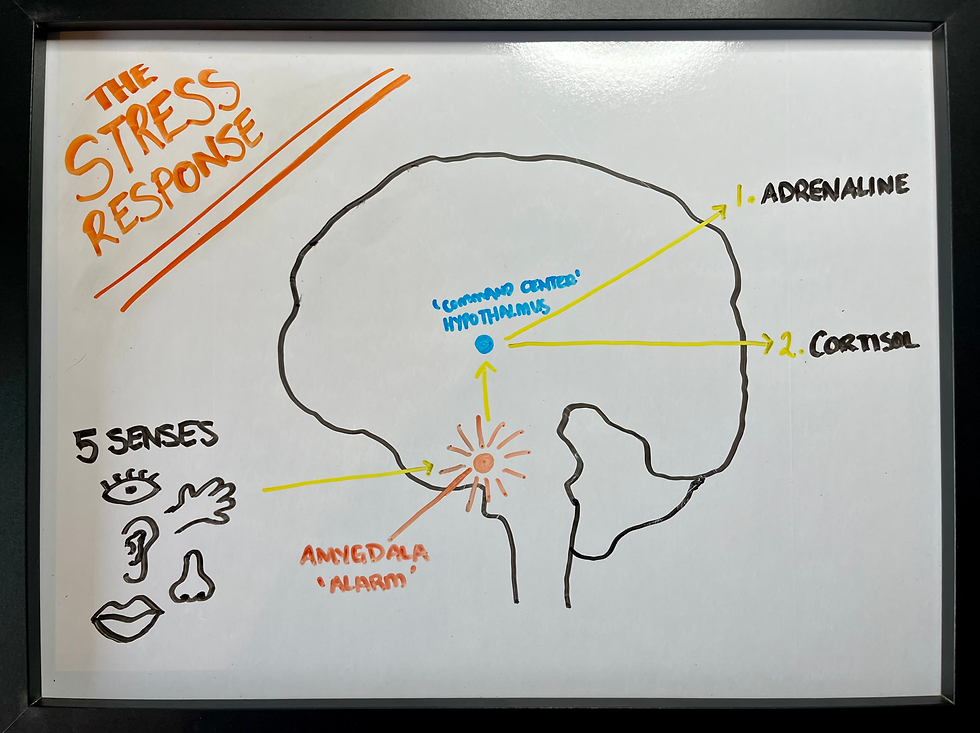Understanding the Science Behind the Stress Response: How Your Body Reacts to Stress
- emil473
- Mar 16
- 2 min read
Maybe you've heard of the stress response before, or as it is more often referred to, your fight-flight-freeze-fawn response. We all experiance the stress response, some more than others. But knowing when it is healthy and when it might be having a negative impact on you is sometimes less often discussed.
So, let's start with the science. What is a stress response?
Our stress response is a survival mechanism, designed to keep us alive in times of danger. Think about your distant ancestor leaving their comfy cave in the morning only to discover a saber tooth tiger roaming nearby. Their stress response would be activated by the visual cue of the tiger, which would cause their body to prepare to react to the danger with either a fight-flight-freeze-fawn response. Stress hormones get released causing their heart to race, rapid breathing, and muscles to tense. Your ancestor is now ready to respond to the saber tooth tiger quickly and they are able to survive another day.

But now a days, our survival mechanism is often faced with less obvious threats and somtimes it gets confused or overwhelmed. Maybe it's an intense work assignment, a screaming child, or a car that won't start. Your brain, or more accuratly, your amygdala interprets sensory information and decides that you are in danger. This message is sent on to your hypothalamus, the command centre for your body. Your sympathetic nervous system than trigger the release of hormones such as adrenaline which cause your heart to spread up and breathing to quicken. Then it releases cortisol into your system and keeps you on high alert. Once the threat has passed, you complete the assignment, the child is calmed, the car starts, your parasympathetic system calms you and your cortisol levels fall.





Comments